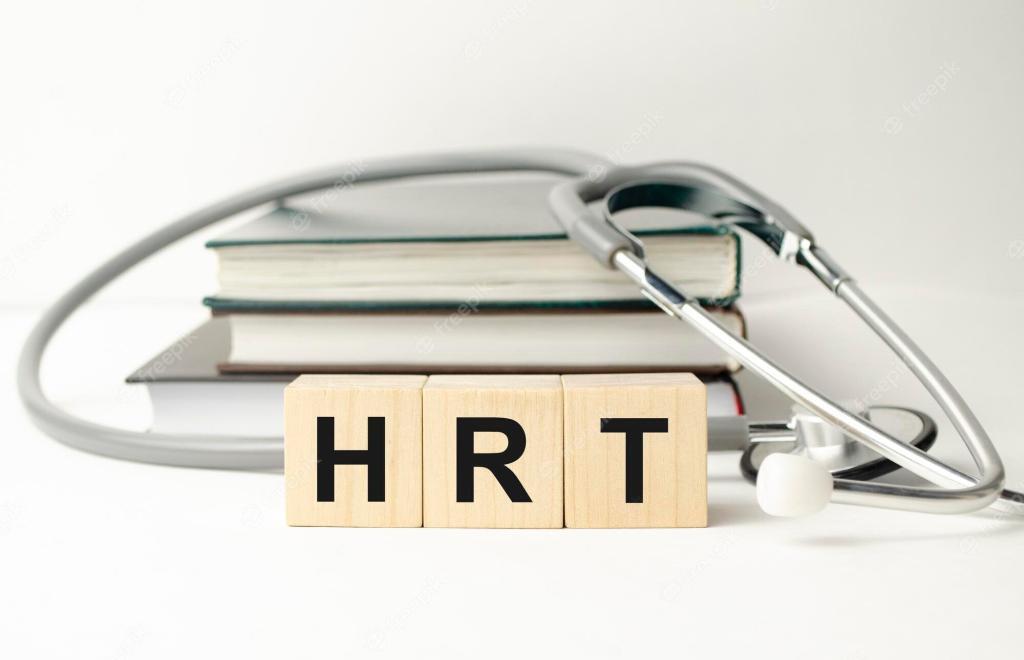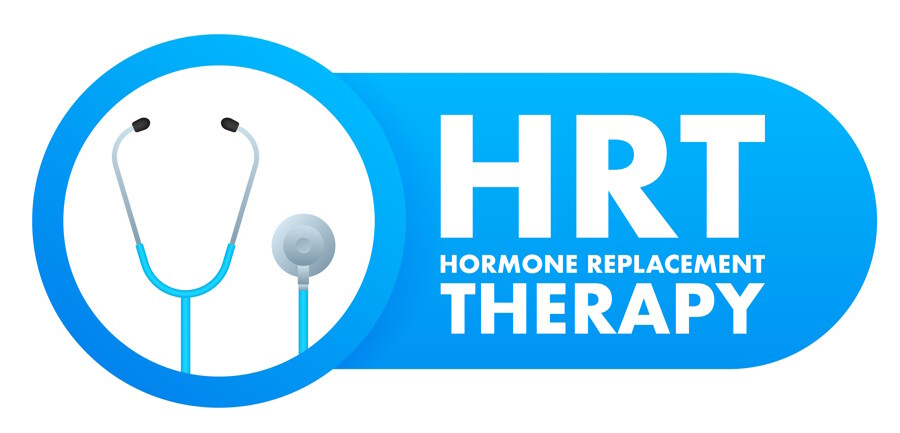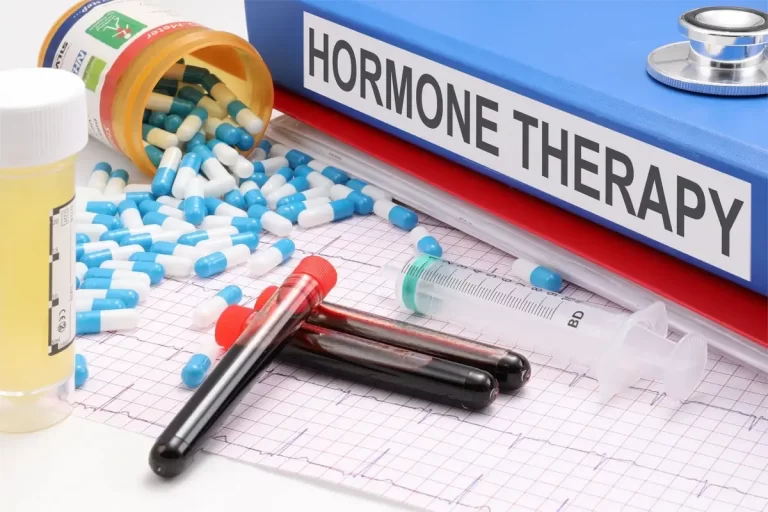Welcome to our comprehensive guide on hormones and their amazing effects on transgender women! This article is specially crafted to provide you with an in-depth understanding of hormone replacement therapy (HRT), the physical and emotional changes it brings, as well as the potential risks and side effects. So, are you ready to learn more about this transformative journey? Let's dive in!n.
Understanding the Role of Hormones
Hormones are powerful chemical messengers that play a crucial role in regulating various processes in our bodies, from growth and development to mood and emotions. In this section, we'll explore the role hormones play in shaping our lives and their significance in the lives of transgender women.
| Topic | Key Points |
|---|---|
| Estrogen | Estrogen is a primary female sex hormone that promotes breast development, fat redistribution, and skin changes |
| Anti-Androgens | Anti-androgens suppress the production of testosterone, leading to a reduction in body and facial hair growth |
| Progesterone | Progesterone is a hormone that can promote breast development and has potential benefits for mood and bone health |
| Breast Development | HRT can lead to breast development that occurs in stages, with the final size and shape determined by genetics |
| Fat Distribution | HRT can lead to a redistribution of body fat, with increased fat in the hips, thighs, and buttocks, and decreased fat in the abdomen |
| Skin and Hair Changes | HRT can lead to softening of the skin and changes in hair texture and growth patterns |
| Mental Health Benefits | HRT can lead to improvements in gender dysphoria, anxiety, and depression |
| Blood Clots and Cardiovascular Risks | HRT can increase the risk of blood clots and cardiovascular issues, especially in older transgender women or those with other risk factors |
| Liver Function | HRT can affect liver function, so regular monitoring is important |
| Breast Cancer Risk | HRT may increase the risk of breast cancer, especially with long-term use or high dosages |
| What to Expect in the First Year | In the first year of HRT, physical changes may occur rapidly, with breast development and fat redistribution being among the earliest changes |
| Long-term Effects and Adjustments | Long-term effects of HRT include changes in bone density, cholesterol levels, and risk of certain cancers, so ongoing monitoring and adjustment are important |
Importance of Hormones in Transgender Women
Hormones are essential for transgender women who wish to align their physical appearance with their gender identity. They help bring about significant physical and emotional changes, which can alleviate gender dysphoria and improve overall mental health. Moreover, hormones can also impact fertility, making it essential for transgender women to be well-informed about their options and potential long-term effects.

Hormone Replacement Therapy (HRT) for Transgender Women
HRT, Hormone replacement therapy is a vital part of the transition process for many transgender women. It involves taking specific hormones to induce desired physical and emotional changes. In this section, we'll explore what HRT is, its goals and objectives, and the major hormones involved in the process.
What is HRT?
Hormone replacement therapy (HRT) is a medical treatment used to help transgender women achieve a more feminine appearance and experience emotional changes in line with their gender identity. It involves administering estrogen, anti-androgens, and sometimes progesterone to bring about these changes.
Goals and Objectives of HRT
The primary goal of HRT for transgender women is to reduce the effects of testosterone and increase estrogen levels, promoting feminization. This can help alleviate gender dysphoria, improve mental health, and enhance overall well-being. But what specific changes can you expect from HRT? We'll delve into that in the upcoming sections!
The Major Hormones Involved
There are several key hormones involved in the feminization process for transgender women. In this section, we'll discuss the roles and effects of estrogen, anti-androgens, and progesterone in HRT.
Estrogen
Estrogen is the primary female sex hormone responsible for the development of feminine physical characteristics. Let's explore its role and effects in HRT for transgender women.
Role and Effects of Estrogen
For transgender women, estrogen helps stimulate breast development, promotes fat distribution to feminine areas, and contributes to softer skin, among other changes. By increasing estrogen levels, HRT helps trans women experience the physical changes they desire, ultimately leading to an improved sense of well-being and self-confidence.
Anti-Androgens
Anti-androgens are another crucial component of HRT for transgender women. They help counteract the effects of testosterone, which is the primary male sex hormone. Let's discuss the different types of anti-androgens and how they work.
Different Types of Anti-Androgens
There are several types of anti-androgens used in HRT, including spironolactone, cyproterone acetate, and GnRH agonists. Each type works differently, but their overall goal is to reduce the effects of testosterone, making it easier for estrogen to bring about desired physical changes.
How Anti-Androgens Work
Anti-androgens work by either blocking the production of testosterone, inhibiting its conversion to a more potent form, or preventing it from binding to androgen receptors. By reducing the effects of testosterone, anti-androgens allow estrogen to have a more significant impact on feminizing the body.
Progesterone
Progesterone is another hormone sometimes used in HRT for transgender women, although its role is less well-established. Let's discuss the potential benefits and controversies surrounding its use.
Potential Benefits and Controversies
Some experts believe that progesterone can aid in breast development, improve mood, and enhance overall well-being. However, there is still debate within the medical community about its effectiveness and necessity in HRT for transgender women. It's essential to discuss the potential benefits and risks of progesterone with your healthcare provider before incorporating it into your HRT regimen.
Physical Changes due to HRT
Hormone replacement therapy can bring about a variety of physical changes in transgender women, helping them feel more aligned with their gender identity. In this section, we'll explore the various transformations one can expect, such as breast development, fat redistribution, and changes in skin and hair.
Breast Development
Breast development is one of the most anticipated physical changes for transgender women undergoing HRT. Let's take a closer look at the stages and expectations of this process.
Stages and Expectations
Breast development typically begins within the first few months of HRT and can continue for two to three years. It's important to remember that results vary, and factors such as genetics, age, and hormone levels can influence growth. While some trans women may experience significant breast growth, others may see more modest changes. It's crucial to have realistic expectations and embrace the unique journey that HRT offers.
Redistribution of Body Fat
HRT can also impact the way body fat is distributed, giving transgender women a more feminine appearance. Let's discuss how HRT affects fat distribution.
How HRT Affects Fat Distribution
Estrogen plays a significant role in redistributing body fat. During HRT, trans women may notice fat accumulating in areas such as the hips, buttocks, and thighs, creating a more feminine silhouette. Keep in mind that this process can take time, and individual results will vary.
Thinning and Slowing of Body Hair Growth
Many transgender women are eager to see changes in their body hair as they undergo HRT. Let's explore the effects of HRT on hair growth.
Skin and Hair Changes
HRT can cause body hair to become thinner and lighter in color, as well as slow down its growth rate. This can make it easier to manage and maintain a more feminine appearance. However, it's important to note that HRT may not eliminate the need for hair removal procedures such as laser or electrolysis, especially for facial hair.
Softening of Skin
Estrogen can also lead to softer, smoother skin, giving transgender women a more feminine appearance. This is due to an increase in subcutaneous fat and a decrease in collagen production, resulting in a more supple skin texture.
Changes in Hair Texture
Some trans women may notice changes in the texture of their hair as they undergo HRT. These changes can include increased softness, shine, and sometimes even alterations in curl pattern. While these changes can be subtle, they can contribute to a more feminine appearance overall.

Emotional and Psychological Changes
In addition to physical transformations, HRT can also bring about emotional and psychological changes for transgender women. In this section, we'll discuss the impact of hormones on mood, gender dysphoria, and mental health.
Mood Swings and Emotional Sensitivity
As hormone levels fluctuate during HRT, some transgender women may experience mood swings or heightened emotional sensitivity. It's essential to be patient and understanding with oneself during this time, as these changes are a normal part of the hormone adjustment process.
Impact on Gender Dysphoria
HRT can have a significant positive impact on gender dysphoria for many transgender women. As physical and emotional changes occur, trans women often feel more aligned with their gender identity, leading to a reduction in dysphoria and improved overall well-being.
Mental Health Benefits
Many transgender women experience mental health benefits from HRT, including reduced anxiety and depression, increased self-esteem, and an overall improvement in their quality of life. It's important to remember that everyone's experience is unique, and it's crucial to maintain open communication with your healthcare provider to ensure the best possible outcomes.
Potential Risks and Side Effects of HRT
While hormone replacement therapy can have numerous positive effects on transgender women, it's also essential to be aware of the potential risks and side effects. In this section, we'll discuss concerns such as blood clots, cardiovascular risks, and breast cancer risk.
Blood Clots and Cardiovascular Risks
One of the potential risks associated with HRT is the development of blood clots, which can lead to serious complications such as deep vein thrombosis, pulmonary embolism, and stroke. Additionally, estrogen can increase the risk of cardiovascular events, particularly in individuals with pre-existing risk factors like smoking, obesity, and a family history of heart disease. It's vital to discuss these risks with your healthcare provider and take appropriate steps to minimize them.
Liver Function
Hormone replacement therapy can sometimes impact liver function, so it's essential to have regular blood tests to monitor liver enzymes and ensure overall liver health. If you have a history of liver problems or are taking medications that can affect liver function, be sure to discuss this with your healthcare provider.
Breast Cancer Risk
While the risk of breast cancer in transgender women is still not entirely understood, some studies suggest that it may be slightly higher than in cisgender men but lower than in cisgender women. It's crucial to have regular breast exams and mammograms as recommended by your healthcare provider to monitor for any potential concerns.
Monitoring and Adjusting HRT
Proper monitoring and adjusting of hormone replacement therapy is essential to ensure optimal results and minimize potential risks. In this section, we'll discuss the initial hormone level assessment, regular checkups and blood tests, and adjusting dosage and treatment as needed.
Initial Hormone Level Assessment
Before starting HRT, your healthcare provider will perform an initial assessment to determine your baseline hormone levels. This information will help guide the development of your individualized HRT plan and serve as a reference point for future adjustments.
Regular Checkups and Blood Tests
Regular checkups and blood tests are crucial to monitor your hormone levels, liver function, and overall health. These appointments provide an opportunity to discuss any concerns, side effects, or desired changes with your healthcare provider, ensuring your HRT regimen remains safe and effective.
Adjusting Dosage and Treatment
It's not uncommon for hormone dosages and treatment plans to require adjustments over time. Factors such as age, weight, and individual response to hormones can all impact the effectiveness of HRT. By working closely with your healthcare provider, you can make adjustments as needed to optimize your treatment and achieve the best possible results.
Timeline of Hormonal Changes
The timeline of hormonal changes during HRT can vary for each individual. In this section, we'll discuss what to expect in the first year and the long-term effects and adjustments that may be necessary.
What to Expect in the First Year
During the first year of HRT, transgender women can expect to see gradual physical and emotional changes. Breast development, fat redistribution, and skin changes may begin within the first few months, while other changes like hair growth may take longer to manifest. Emotional and psychological changes can also occur throughout this period.
Long-term Effects and Adjustments
Over the long term, HRT can lead to continued physical and emotional changes, as well as potential health risks. It's essential to maintain regular checkups with your healthcare provider to monitor your progress, adjust treatment as needed, and address any concerns that may arise.
Fertility and Insurance Coverage
In this section, we'll discuss the potential impact of hormone replacement therapy on fertility and the importance of understanding insurance coverage for transgender healthcare.
Fertility
Hormone replacement therapy can affect fertility in transgender women, potentially leading to temporary or permanent sterility. It's essential to discuss this possibility with your healthcare provider before beginning HRT if you're considering future parenthood. Options such as sperm banking or assisted reproductive technologies can be explored to help preserve your fertility.
Insurance Coverage
Insurance coverage for hormone replacement therapy and other aspects of transgender healthcare can vary significantly depending on your provider and plan. It's crucial to review your insurance benefits and understand what treatments and procedures are covered. Additionally, many healthcare providers and organizations can offer guidance and assistance in navigating insurance coverage and accessing affordable care for transgender individuals.
Addressing Reversibility and Long-term Effects
As you consider hormone replacement therapy, it's important to be aware of the potential long-term effects and the reversibility of changes brought on by HRT. In this section, we'll discuss these aspects in greater detail.
Reversibility
While some changes induced by hormone replacement therapy may be reversible if treatment is discontinued, others may not be. For example, breast growth and infertility may be permanent, while fat redistribution and skin changes may revert to some extent. It's crucial to discuss the potential reversibility of changes with your healthcare provider before starting HRT to make informed decisions about your transition journey.
Long-term Effects
The long-term effects of hormone replacement therapy can vary for each individual. Continued physical and emotional changes, as well as potential health risks, may occur over time. It's essential to maintain regular checkups with your healthcare provider to monitor your progress, adjust treatment as needed, and address any concerns that may arise. By being proactive and staying informed, you can enjoy the benefits of HRT while minimizing potential risks.
Useful Resources for hormone replacement therapy
As you embark on your journey with hormone replacement therapy, it's essential to have access to reliable resources and support. We've gathered a list of helpful organizations and websites that can provide valuable information and guidance during your transition:
- National Center for Transgender Equality (NCTE) Website: https://transequality.org/ The NCTE is dedicated to advancing transgender rights and providing resources for transgender individuals, including information on healthcare, legal issues, and advocacy.
- World Professional Association for Transgender Health (WPATH) Website: https://www.wpath.org/ WPATH is an international organization that promotes high-quality healthcare for transgender and gender non-conforming people. Their website includes the latest version of the Standards of Care, which outlines best practices for transgender healthcare.
- The Transgender Law Center (TLC) Website: https://transgenderlawcenter.org/ The TLC is a leading organization advocating for transgender rights and offering legal resources, including information on healthcare access, insurance coverage, and workplace rights.
- Planned Parenthood Website: https://www.plannedparenthood.org/learn/gender-identity Planned Parenthood provides comprehensive information on gender identity and transgender healthcare, including hormone replacement therapy, mental health support, and reproductive health.
- Point of Pride Website: https://pointofpride.org/ Point of Pride is a nonprofit organization that offers support and resources for transgender individuals, including financial assistance for gender-affirming surgeries, HRT, and other healthcare needs.
By exploring these resources, you can stay informed, connect with others who share your experiences, and access vital support throughout your transition journey.
Conclusion on Hormone Replacement Therapy (HRT) for Transgender Women
Embracing the Journey and Celebrating the Effects of Hormones on Transgender Women
Hormone replacement therapy can have some truly amazing effects on transgender women, both physically and emotionally. It's important to remember that each person's journey is unique, and it's essential to be patient and understanding with yourself as you navigate the changes brought on by HRT.
While there are potential risks and side effects associated with hormone therapy, working closely with your healthcare provider and following their guidance can help ensure a safe and effective transition. Embrace your journey, celebrate your progress, and cherish the transformative power of hormones as you become more aligned with your true self.
FAQ: Questions About Hormone Replacement Therapy for Transgender Women
Transitioning can be a deeply personal and transformative journey, and it's only natural to have questions along the way. To help you better understand hormone replacement therapy (HRT) for transgender women, we've compiled a list of frequently asked questions and their answers. Our goal is to provide you with the information you need to make informed decisions and embrace your unique path.
How does HRT work to bring about physical and emotional changes?
HRT works by altering the balance of hormones in the body, leading to various physical and emotional changes. For transgender women, this typically involves taking estrogen to stimulate feminine traits and anti-androgens to block the effects of testosterone. As a result, HRT can bring about a range of changes, from breast development and fat redistribution to mood swings and improved mental health.
What are the main hormones involved in HRT for transgender women?
The main hormones involved in HRT for transgender women are estrogen, which is responsible for promoting feminine characteristics, and anti-androgens, which help suppress the effects of testosterone. In some cases, progesterone may also be prescribed, although its benefits and role in HRT are still under debate.
How long does it take to see results from HRT?
The timeline for seeing results from HRT can vary for each individual. Some changes, such as breast development and fat redistribution, may begin within the first few months of treatment, while others, like hair growth, may take longer to manifest. Emotional and psychological changes can also occur throughout this period.
What are some potential risks and side effects of HRT?
Potential risks and side effects of HRT include blood clots, cardiovascular risks, liver function concerns, and a potential increased risk of breast cancer. It's important to discuss these risks with your healthcare provider and take appropriate steps to minimize them.
How do I know if HRT is right for me?
To determine if HRT is right for you, it's essential to consult with a qualified healthcare professional who specializes in transgender care. They will evaluate your medical history, discuss your goals and concerns, and help you decide if HRT is a suitable option for your transition journey.
What can I expect during the initial consultation and hormone level assessment?
During the initial consultation and hormone level assessment, your healthcare provider will discuss your goals for HRT, review your medical history, and perform a physical exam. They will also take a blood sample to assess your baseline hormone levels, which will help guide the development of your individualized HRT plan.
Will HRT impact my fertility, and what options do I have to preserve it?
HRT can impact fertility in transgender women, potentially leading to temporary or permanent sterility. If you're considering future parenthood, it's essential to discuss this possibility with your healthcare provider before beginning HRT. Options such as sperm banking or assisted reproductive technologies can be explored to help preserve your fertility.
How often will I need to see my healthcare provider for checkups and adjustments during HRT?
The frequency of checkups and adjustments during HRT can vary based on individual factors and your healthcare provider's recommendations. Typically, you will need to see your healthcare provider every few months during the initial stages of HRT, with checkups becoming less frequent as your hormone levels stabilize.
What insurance coverage options are available for transgender healthcare and HRT?
Insurance coverage for transgender healthcare and HRT can vary significantly depending on your provider and plan. It's crucial to review your insurance benefits and understand what treatments and procedures are covered. Additionally, many healthcare providers and organizations can offer guidance and assistance in navigating insurance coverage and accessing affordable care for transgender individuals.




